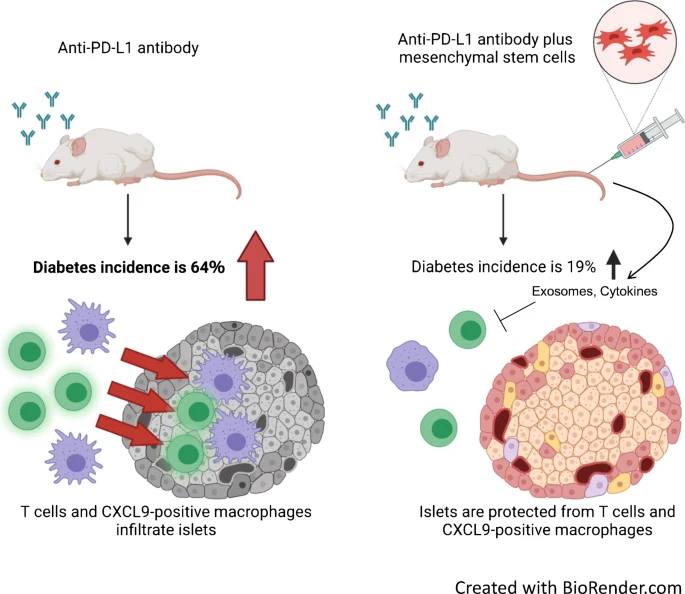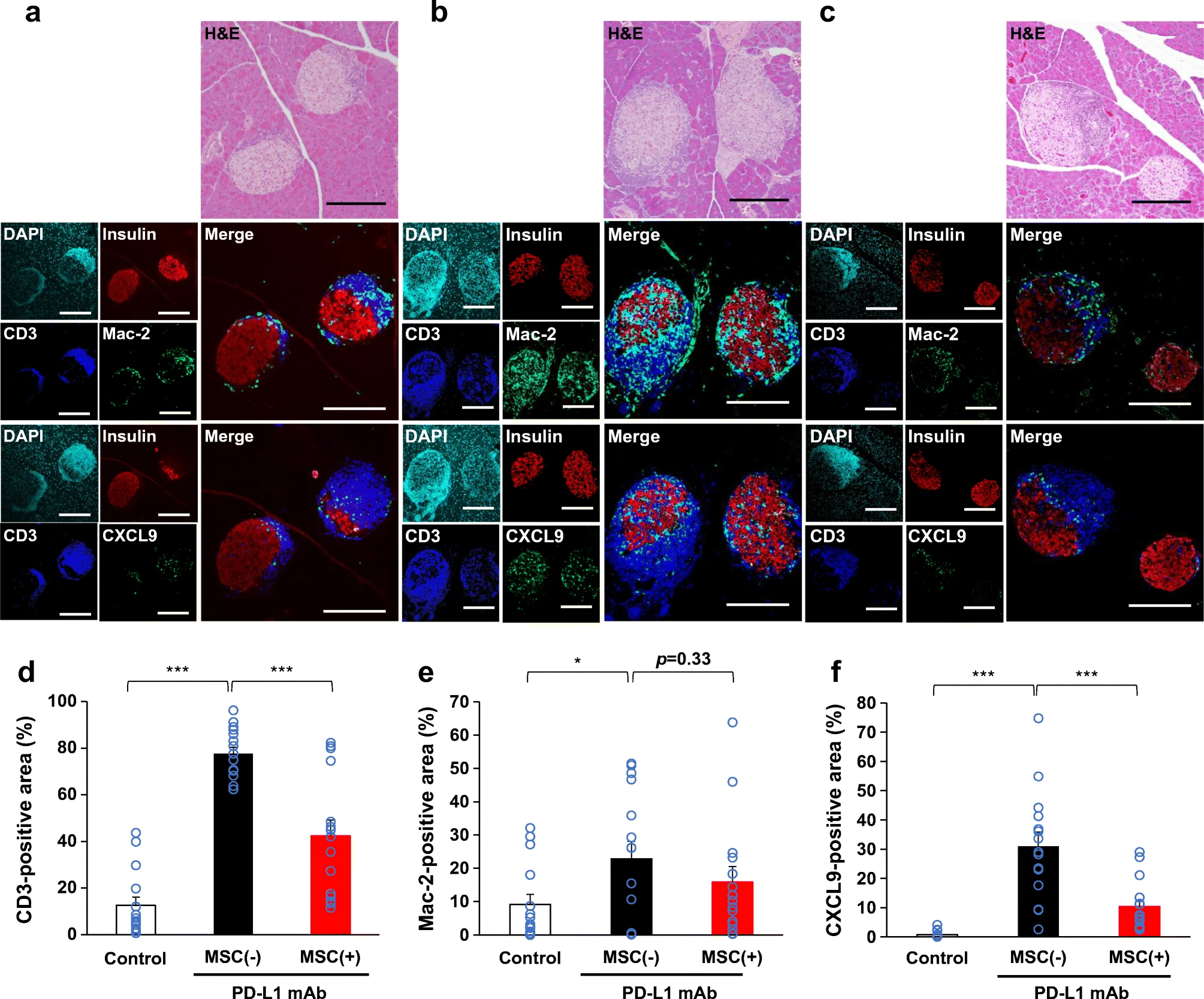According to new atlas, type 1 diabetes may be a rare but serious side effect of cancer treatment with immune checkpoint inhibitors In a new mouse study, Japanese researchers have shown that stem cell therapy can help prevent this

Many types of cancer use a "cunning trick" against the immune system - they trigger a "checkpoint" system that inactivates immune cells that attack the tumor. A major cancer immunotherapy targets this process, allowing the immune system to attack again.
This treatment using immune checkpoint inhibitors shows promise in fighting a range of cancers. However, there may be some adverse immunological side effects - colitis is common but treatable; A very small number of patients will continue to develop type 1 diabetes. This is because the accumulation of immune cells in the pancreas destroys insulin production.

In the new study, researchers at Osaka University in Japan investigated whether mesenchymal stem cells (MSCs) could help prevent this serious side effect. These specialized stem cells play a role in tissue regeneration and regulating immune function.
The team first induced diabetes by injecting mice with purified PD-L1 monoclonal antibody, a common immune checkpoint inhibitor. Then, some mice were treated with mesenchymal stem cells from human adipose tissue, and the researchers examined the immune cells in their pancreatic secretions.
Among the mice that received antibodies only, 64% (or 16 of 25 animals) developed type 1 diabetes, while only 19% (or 4 of 21) of the mice that received mesenchymal stem cells at the same time developed diabetes. The accumulation of T cells and macrophages was also significantly reduced in the islets of mice treated with mesenchymal stem cells.
"We found that mesenchymal stem cells effectively prevented the influx of immune cells, thus avoiding adverse effects on pancreatic cells," said corresponding author shunbun Kita
Of course, this treatment is still a long way from being used in humans - it's only an early animal experiment, and it's a fairly small experiment. More work is needed to study the potential of mesenchymal stem cells to help prevent this rare but serious side effect.
The study was published in diabetes 》In the magazine.